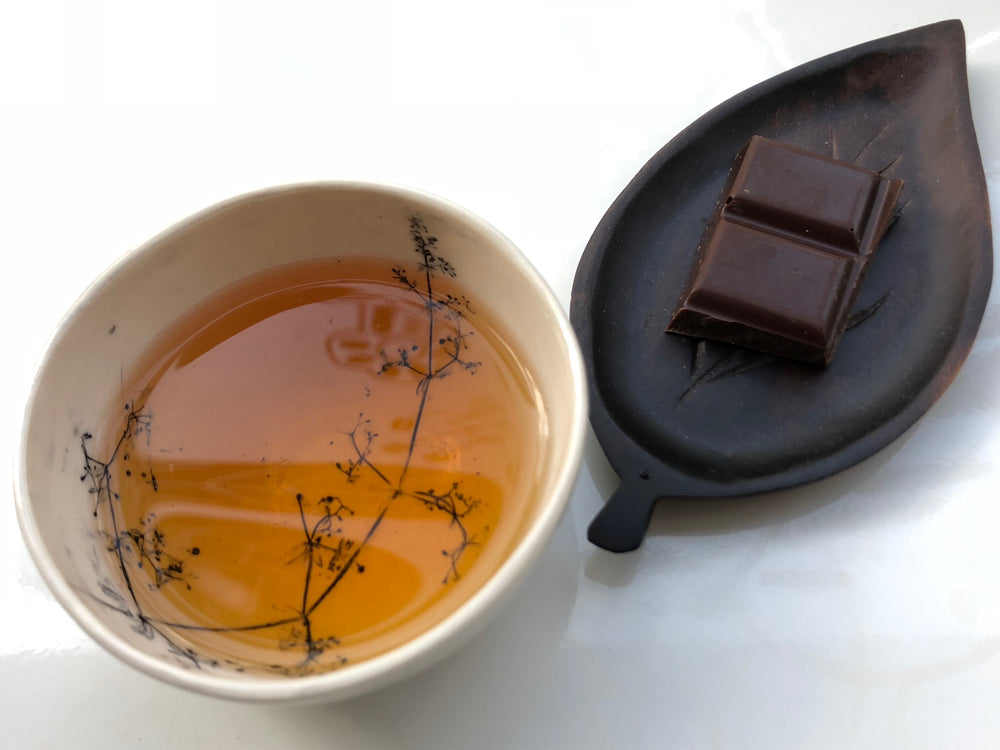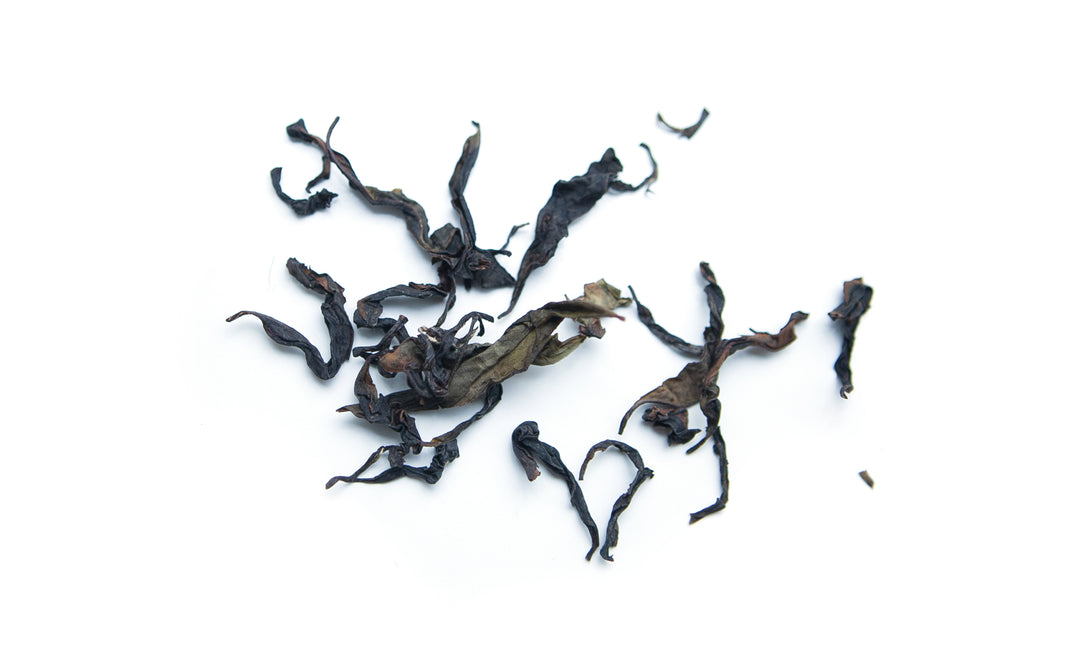Wulong know-how
A child of Nantes, "the city of camellias", and a former sound engineer at Radio France, Jakez Hubert has been specialising in the manufacture of French wulong tea since 2021. Intrigued by the secrets behind the production of this complex tea, in 2019 he embarked on a journey through the mountains of Taiwan, one of the cradles of wulong, to meet local craftsmen and tea growers.Jakez was lucky enough to forge a special relationship with Filleules des Fées, a pioneer of tea growing in France. Together they developed a viable manufacturing process for high-quality Breton wulong tea, adapted to local conditions.Jakez studied the traditional methods of harvesting and processing wulong tea with great curiosity. He experiments meticulously with each stage, from the choice of tea leaves to controlled oxidation and roasting. Alongside the creation of his own Roches de l'Éllé tea garden, Jakez Hubert currently holds the position of Tea Maker/Trainer at Filleule des fées.
The Roches de L'Éllé garden
In 2023, Jakez Hubert created Roches de L'Éllé in southern Finistère, a tea garden dedicated to the production of wulong. The project, comprising around 1,500 tea bushes spread over 1 hectare of land, is designed to be on a human scale. Nestling not far from a chaos of granite boulders in which one of Brittany's wildest rivers meanders, the tea bushes benefit from exceptional conditions in a forest environment, conducive to the creation of a truly 'local tea'. The tea bushes are passionately cultivated using agro-ecology methods, alongside companion plants such as wild strawberries, clover and geraniums. A belt of trees, some of which are over a hundred years old, surrounds and protects the plantation from drying winds. A natural mulch made from ferns and other leaves from oak, chestnut, beech and birch trees protects the plants in difficult conditions. The use of machinery is kept to a strict minimum, with hand tools doing most of the work. The Roches de L'Éllé plantation, still in its infancy, needs to grow for the time being. It will unveil its very first wulong during 2025-2026.









